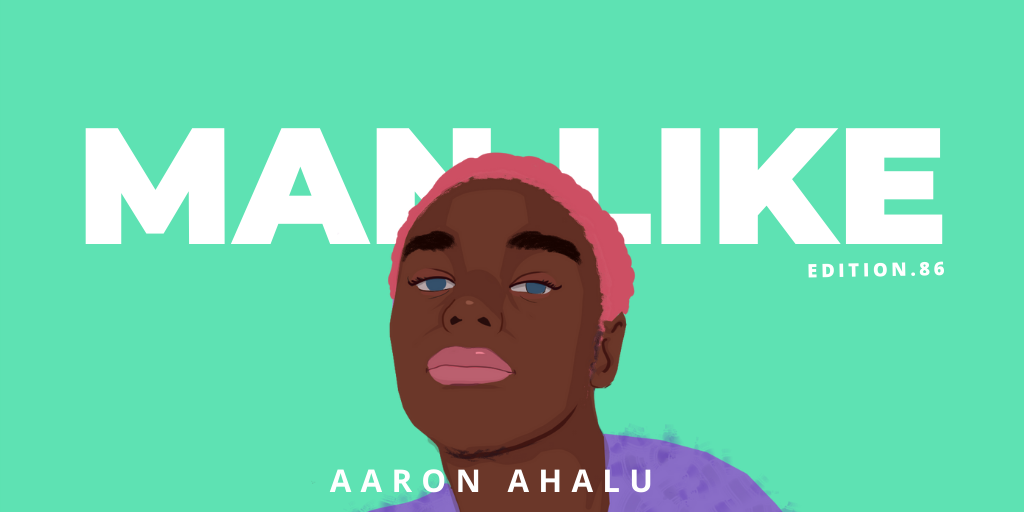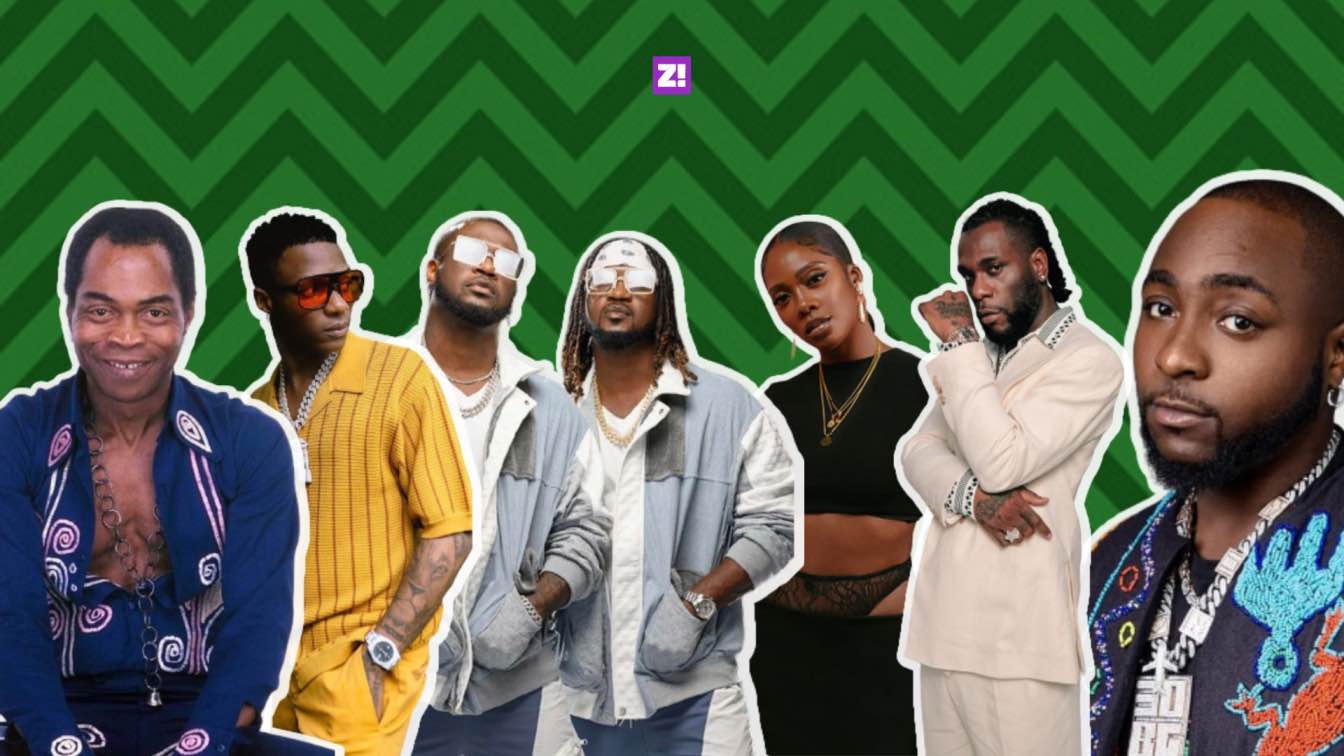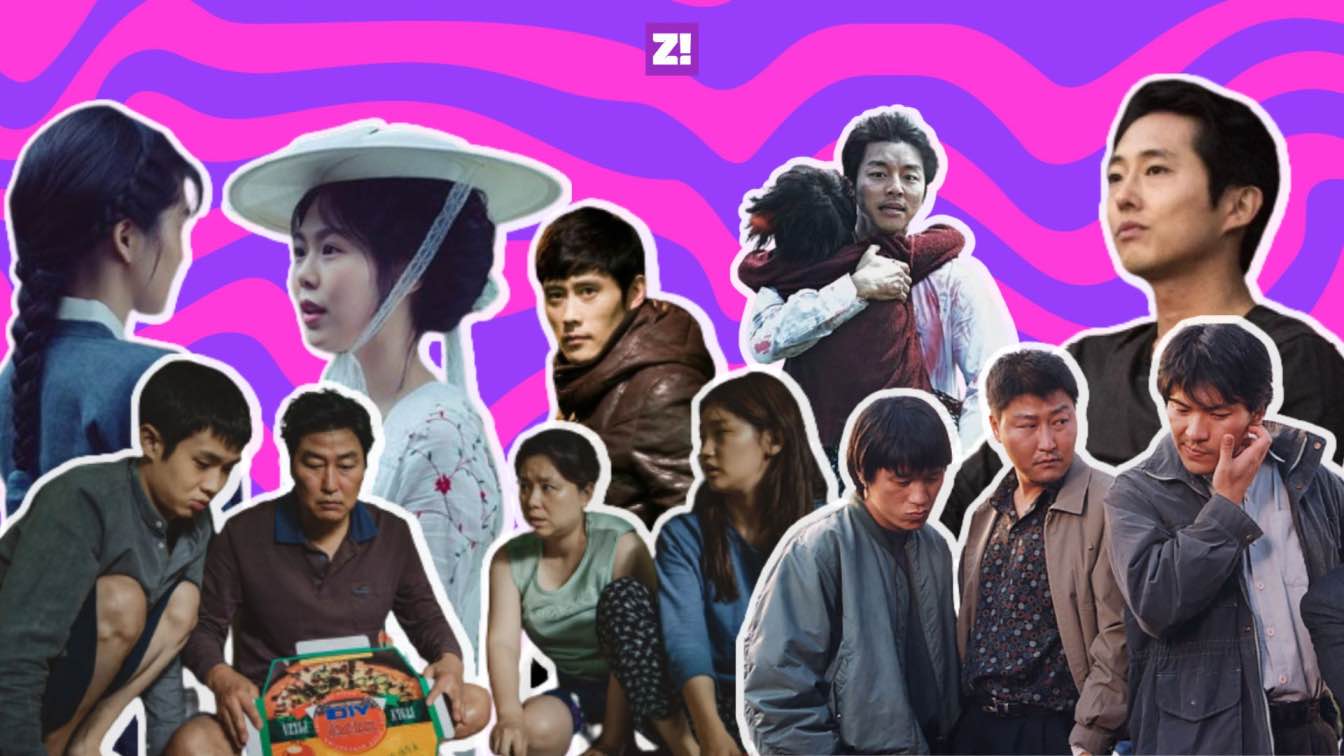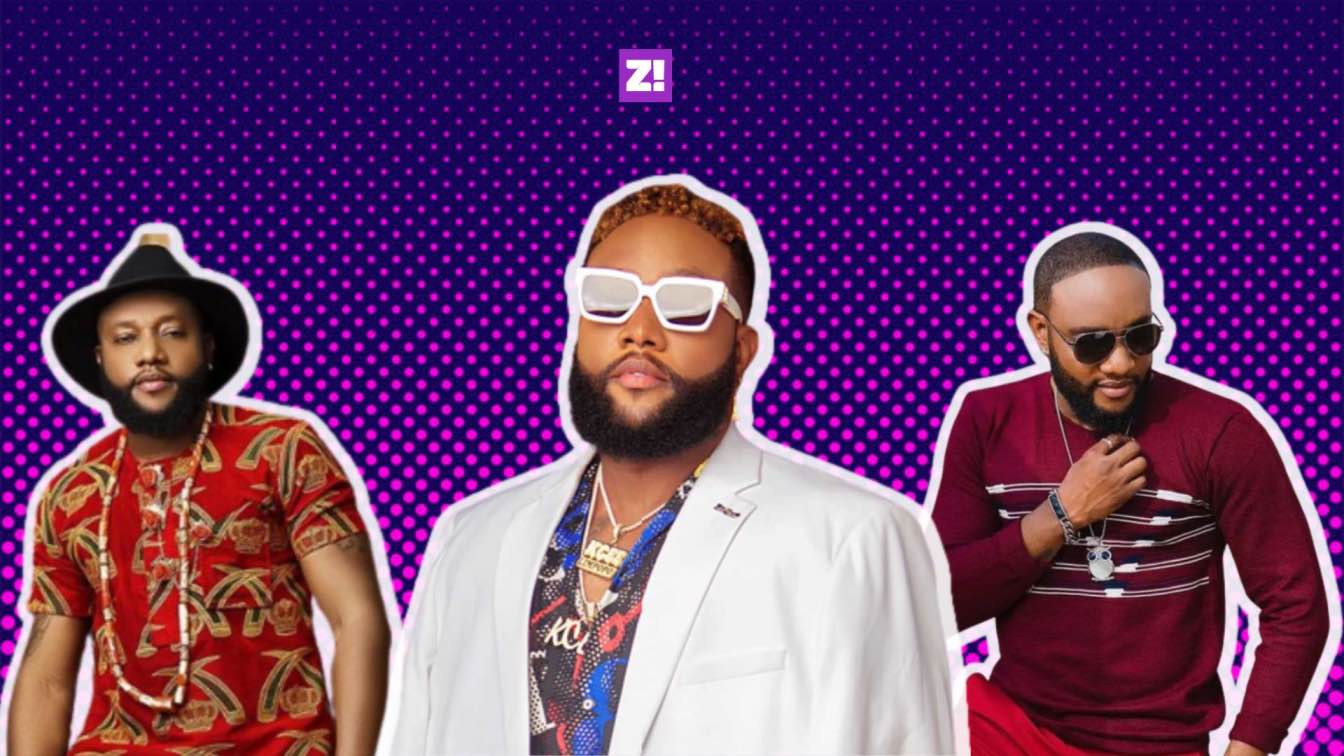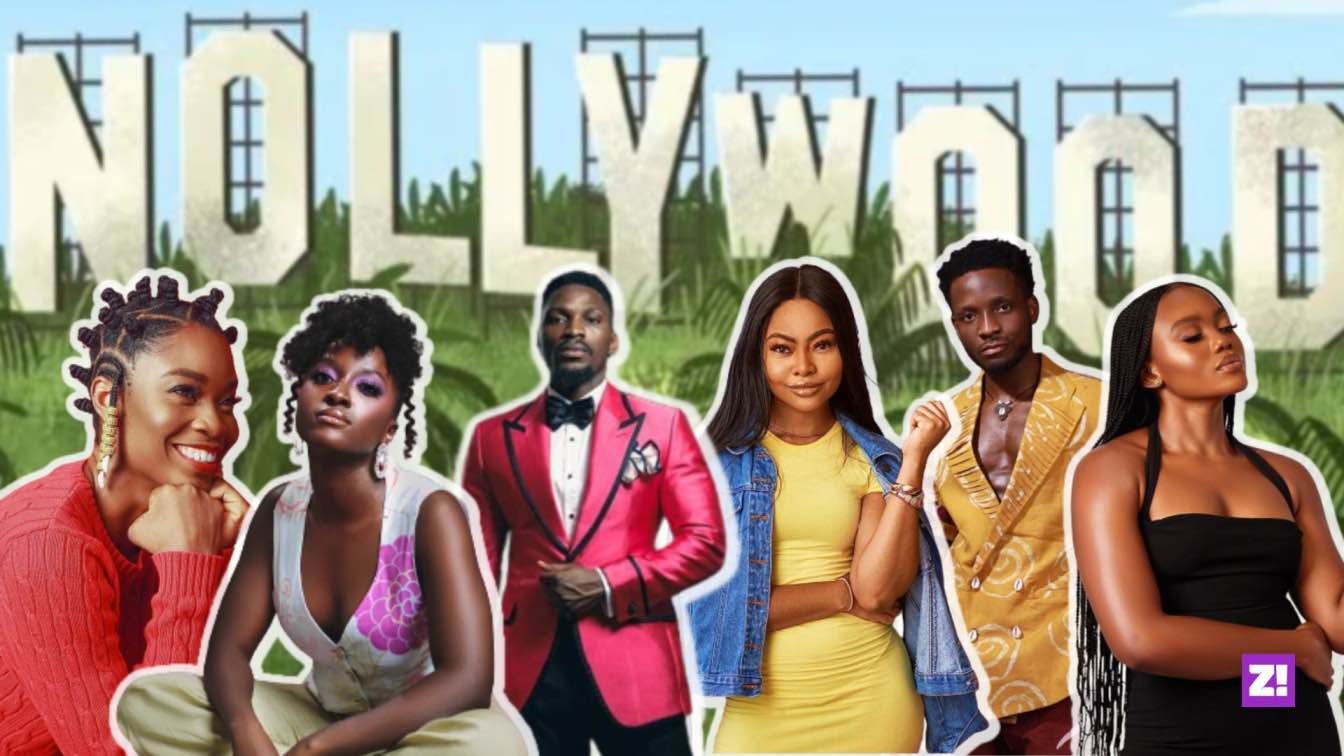What does it mean to be a man? Surely, it’s not one thing. It’s a series of little moments that add up. Man Like is a weekly Zikoko series documenting these moments to see how it adds up. It’s a series for men by men, talking about men’s issues. We try to understand what it means to “be a man” from the perspective of the week.
Opeyemi Famakin prides himself on being Nigeria’s biggest food critic and he wants you to know it. Throughout our conversation, he mentions the title more than once, but what initially seems like bragging slowly reveals itself as a burden — to not just be the best, but remain the best. How has this title affected him and does he really enjoy the fanfare that comes with it? Well, Opeyemi has a lot to say.
In this episode of Man Like, he tells us why he’s no longer interested in gender wars, the weird thing that drives him and why he’s unhappy with making it this early in life.
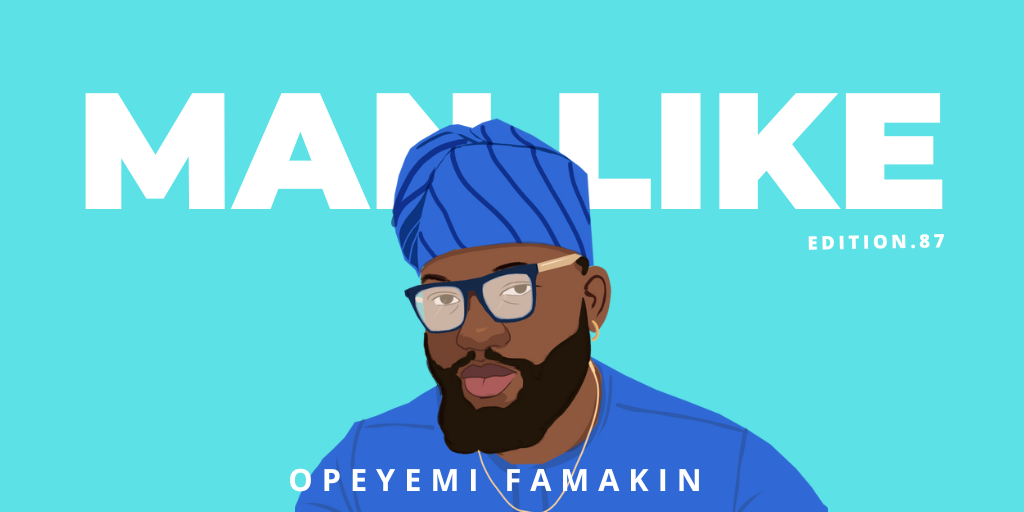
Was there a time in your childhood when you struggled with the concept of being a man?
I don’t think I’ve ever struggled with that. But in the past three years, I’ve started to understand what it means to be a man in Nigeria and the male privilege that comes with it. I grew up in a family without gender roles. Sometimes, I cooked, and sometimes, my sister washed the car. Chores weren’t assigned based on sex, so I just assumed that was how the world worked. I was wrong.
I can go on a long walk in the middle of the night and the only fear I’d have is I might get robbed. Even that is unlikely because I’m really tall and intimidating with a deep-ass voice. Women can’t do that because the dangers they face are much worse. But I never understood these tiny privileges as a teenager.
What sparked this realisation?
I stopped arguing and started listening to women more. I never really had female friends outside of classmates or women I had sexual relationships with. Because of this, my conversations with women were limited to banter and nothing deep. We were all catching cruise. I’m older now and less inclined to argue with women when discussing their experiences. This year, I discovered women were scared to take Uber at night. Me, if an Uber driver says nonsense, we’ll throw hands.
Has this changed your relationship with women?
Yes. I shut up and listen when women are talking. Even though it’s reduced now, I remember when we had gender wars on Twitter, and I felt like women were painting men as villains. Because I had a dad who always told me he loved me and friends who were real stand-up guys, I just thought the generalisation that Nigerian men are scum was a lie. I was in a bubble. But now I know that everyone is entitled to their truth. I was doing all lives matter for a black lives matter situation.
It’s not like I’m a fan of the bad rep Nigerian men get, but these days, when conversations like that come up, I know there’s a reason behind it.
This bad rep you talk about, has it affected you personally?
Yes. So there was this girl I really liked a while ago. She had just come from Abuja to Lagos for NYSC, and just like everyone, she’d heard of Yoruba demons. Looking at me with the beard, the trad and the gold chain, I fit the description. And because of that, she was hesitant about being with me.
It affected me because, during our interaction, I hadn’t done any Yoruba demon activity. LOL. I was a total gentleman, but this girl wouldn’t go forward with a genuine relationship because of the stories she’d seen on Twitter. We all laugh about it online, but some people take these jokes seriously.
Damn. Do you try to prove you’re different?
I don’t bother with that anymore. If I like you and you think I’m a Yoruba demon then, OK. It is what it is. I try to pursue relationships with open-minded people because I don’t like stress abeg.
Talking about proving things, when did it hit you that you were a man?
When I paid rent for the first time. All my life, my parents covered me financially, and even when I moved out, they paid my first rent. But when it was up and I paid the next one myself, omo, it changed how I looked at money.
How?
I realised I wasn’t really approaching money the right way. My parents brought my sister and me up as savers, not investors. They were civil servants, so they expected us to work for somebody else and save from our salaries. This is a good and bad thing because saving a lot means I don’t struggle financially, but not investing means I’m unable to grow my money like I could. It’s the one thing that keeps me up at night. With the way the naira is losing value every day, I might wake up one day and see that all I’ve saved has lost its value.
These days, I’m looking into investing in forex sha. I’m not proud that I don’t have financial investments, but I’ve invested in myself, and now I’m the number one food critic in Nigeria.
Big flex. How did this food critic journey even start?
I’ve been prepping to be a food critic all my life; I just didn’t know it. While most families travelled to Disneyland and the likes during holidays, my parents took us on trips to try out food from places like the US and Asia. This is how my love for food started because it broadened my palette. I started posting about my food experiences at university, but I didn’t take any of it seriously.
In 2019, I started working in advertising, and one time, a food brand asked my company to work on a campaign. I noticed that we compiled mostly fashion and lifestyle influencers. For a food brand? It didn’t make sense to me. When I realised we didn’t have food influencers in Nigeria, I pitched myself to my colleagues, but they laughed at me because my engagement was low. I took that ginger, studied the market for three months and created a strategy for how I could blow as a food influencer.
Another thing that motivated me was when I DMed Eat Drink Lagos, asking if I could work for them for free, and they aired me. Now that I have many followers, I understand there’s a chance they never saw it. But I took it personally, and that animosity fueled me. LOL. I told everyone I’d be one of the biggest food influencers in the country before the year ran out, and look at me today. I fucking did it.
How do you feel now that you’ve gotten what you wanted?
Good and bad, but more of a bad feeling. It’s like saying you want to be a billionaire and actually becoming one in your early twenties.
I’m sorry, where is the problem here? LOL
I’m not a billionaire or anything. It’s just that I had planned to do so much over time, and now, it looks like I’ve achieved most of it. I’m going to expand my plans. But there’s this initial question of “What next?” and the emptiness that comes with checking everything on your checklist. It’s almost like I’m floating around.
Most of my problems sound dumb to non-food influencers. Unlike social media comedians who make skits, I don’t have a community of colleagues to talk to or collaborate with. So to an extent, I’m also very lonely. But I’ll pick this problem over going back to my 9 to 5.
Interesting. All of this must come with a lot of pressure
It does because now, I have to look for ways to do more and reinvent myself constantly. I’ve also built a brand as the number one food critic in Nigeria, and I have to work twice as hard to maintain this post with many aspiring food critics popping up. That’s a lot of pressure. To other people, it’s a thing of “You’re making money and eating up and down. Why should the number one spot mean so much to you?” But omo, it’s my entire brand.
Fun fact: I still recommend these new influencers to brands that can’t afford me. It’s almost like I’m giving them the ammunition to take my spot. LOL.
Not so random question. Do you ever deal with imposter syndrome?
I struggled with imposter syndrome as recently as last year. I would go to events with big celebrities and stay in a corner because I didn’t think I deserved to be in spaces like that. After all, all I do is eat food and tell people whether or not it’s good. I used to question myself and what I brought to the table with my job, but I don’t do that anymore.
Please, give me tips on how to overcome imposter syndrome
Fake it until you make it. People assume I’m a celebrity, so I lean into it and play along with the script. Over time, I’ve gotten more confident and comfortable with my job and social interactions. I did it so well the first time I tried that someone flew me out to Abuja for work based on my networking that night.
Scrim. Talking about identity, in your own words, what does it mean to be a man?
Where I am right now, I’d say being a man means taking on a lot of responsibilities. This ideology might change in three years, but right now, it’s how I understand the concept of masculinity.
Using your definition, grade your manliness from 0 — 100%
Hmm. I’ll say 75%. My idea of responsibility is financial, and I think I have that covered.
Funds! With this confidence, I’m curious if anything scares you.
I have an irrational fear of failure. Nothing points to me heading in that direction, but I’m just scared of it. I’m also scared of being a bad father and husband because my dad set a standard I must meet. He was the best dad.
On the flip side, what drives you?
Competition. I thrive when I feel like I’m competing with someone else. After I surpassed Eat Drink Lagos’s numbers on social media, I remember I was bored for a while because they were my driving force. Now, there are new guys coming up, and I’m like, “Yes, finally.”
Sir, why do you like violence?
Some people have self-motivation, but I don’t. I need to have someone to compete with all the time. Maybe I need to see a shrink. It’s not a negative competition. It’s just someone to keep me on my toes.
So what’s next for Opeyemi Famakin?
To be the biggest food critic in Africa. Now that I’ve conquered Nigeria, I want to colonise African countries and make them my bitch.
Please, put me in your travelling bag when you’re ready to go
LOL.
